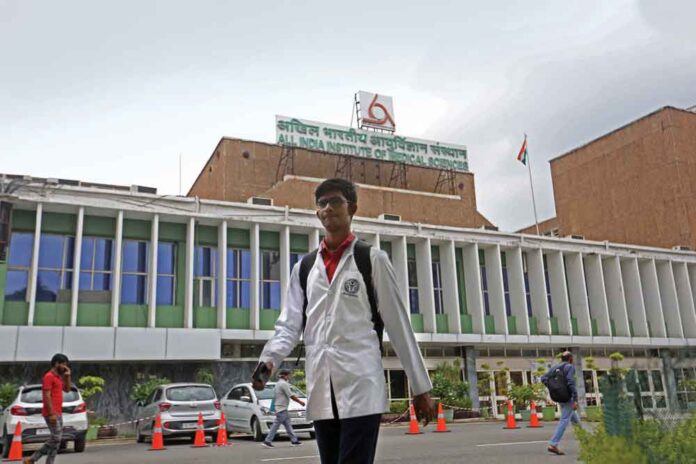Md Kaifee Alam, TwoCircles.net
New Delhi: The Supreme Court of India on July 23 decisively ruled out the possibility of re-conducting the National Eligibility-cum-Entrance Test (Undergraduate) or NEET-UG. A three-judge bench, led by Chief Justice of India DY Chandrachud, concluded there is insufficient evidence to suggest a systemic leak of the exam paper that would undermine its integrity.
Though the ruling cleared the path for the release of revised NEET results and the commencement of the counselling process. the journey to becoming a doctor in India remains arduous. With limited seats in government-run colleges and exorbitant fees in private institutions, many aspiring medical students are compelled to seek education abroad, each with its own set of challenges.
Gufran Hashmi, a 24-year-old from Purnia, Bihar, is one such example. He had enrolled at Zaporizhzhia State Medical University in Ukraine in December 2020 after failing to secure a seat in medical colleges back home. However, his studies were abruptly interrupted by the Russian invasion of Ukraine.
“Circumstances forced me to abandon my MBBS studies. Now, I am assisting my father in his business,” he said. “After three attempts at NEET, I went to Ukraine, but the war halted my education.”
Hashmi’s experience is not unique. Many students who had started their medical education abroad were forced to return to India and pursue alternative courses such as nursing or pharmacy.
“The National Medical Council (NMC) guidelines came too late for us,” he continued. “They allow for course transfers to other countries, but securing a transfer letter from the Ukrainian college was another hurdle. Some students couldn’t obtain it.”
The NMC, which replaced the Medical Council of India in 2020, issued guidelines permitting transfers to foreign colleges within three months of the public notice. However, the financial burden remains significant, as students face high initial fees and additional costs for transferring their education abroad.
“The fees are overwhelming,” Hashmi lamented. “We have to pay consultancy and agent fees again if we want to transfer to another country. This financial strain, combined with the time already invested, is exhausting. Had I stayed in Ukraine, I might have completed my studies.”
For students who complete their medical education abroad, challenges persist. They often face extended course durations and limited patient exposure compared to their Indian counterparts. Despite these hurdles, the trend of pursuing medical degrees overseas is rising, as evidenced by the increasing number of candidates taking the Foreign Medical Graduate Examination (FMGE).
The FMGE, administered bi-annually by the National Board of Examinations in Medical Sciences (NBEMS), assesses foreign medical graduates seeking to practice in India. Data shows a significant increase in FMGE candidates — from 28,597 in 2019 to 62,077 in 2023.
Aman Ameer, a NEET aspirant from Vaishali, Bihar, reflects on the situation: “The number of MBBS seats is insufficient. Competition is intense, and the rise in NEET applications exacerbates the issue.”
A recent study by the Center for Social and Economic Progress (CSEP) shows a growth in medical colleges from 335 in 2010-11 to 612 in 2022-23. However, the proportion of NEET qualifiers who secure MBBS seats has declined. In 2016, 14% of NEET qualifiers could secure a seat, while this fell to just 8.8% in 2022.
“Yes, the number of seats is increasing, but most are in private colleges with fees ranging from Rs 70-75 lakhs to over Rs 1 crore,” said Ameer. “For students from middle-class backgrounds, this is unaffordable. Consequently, many opt for education abroad, where costs are lower.”
The CSEP report highlights that, except for the years 2020 onward, private medical colleges have consistently offered more seats than public ones.
“Indian medical colleges are generally considered superior to foreign ones,” said Aadil Umar (name changed), a second-year MBBS student from Saharsa, Bihar, studying at Mainamoti Medical College in Bangladesh. “But the high fees in India force many to study abroad.”
Students studying MBBS abroad face extended course durations compared to their Indian peers. For example, MBBS programs in countries like Bangladesh, Kazakhstan and Russia typically last five years, compared to 4.5 years in India. The recent NMC guidelines now require a one-year internship in the foreign country followed by an additional year in India, extending their total education period to seven years.
Jyoti Khillare (name changed), a third-year MBBS student from Maharashtra studying in Russia, noted that the 2021 NMC guidelines do not affect students who enrolled before that year. “We are only required to complete one internship in India; whereas, new students face extended requirements,” she says.
The Compulsory Rotating Medical Internship (CRMI) poses additional challenges. NMC guidelines mandate that 7.5% of internship seats be reserved for foreign medical graduates, but the number of candidates often exceeds the available spots, resulting in long wait times.
Dr Ashwini Dalmiya, president of the Delhi Medical Association, suggested, “To reduce FMG waiting times, NMC should consider allowing internships at non-teaching medical institutions, as was the practice in the past.”
Differences in medical technology and infrastructure between host countries and India further complicate matters. Umar explained, “Countries like Bangladesh have smaller hospitals, while Russia boasts advanced medical infrastructure. NMC’s new requirement for hospitals to be on the same campus as colleges can compromise the quality of practical training.”
The NMC maintains a list of approved foreign medical colleges. Dr Dalmiya said, “The NMC must ensure that these colleges meet educational and clinical training standards comparable to those in India.”
The FMGE preparation remains a significant concern for students. “We focus heavily on clearing the FMGE, often subscribing to online educational platforms,” Khillare added.
The challenges faced by Indian students pursuing medical education abroad underscore the need for reforms in both domestic and international medical education systems.
(Names changed upon request)


